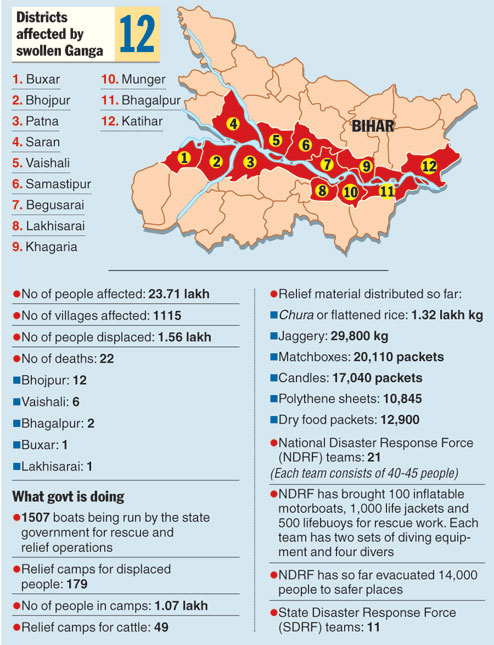
Bihar is set to move on to the public finance management system (PFMS) for direct transfer of funds given to beneficiaries of Swachh Bharat Mission (Gramin) after they get toilets made in their households in rural areas.
Under the scheme, Rs 12,000 is given to the beneficiaries with funds sharing between the Centre and the state in a ratio of 60:40.
To bring all households under the ambit of the sanitation scheme, the Bihar government has launched Lohiya Swachh Abhiyan under which all the households that don't come under the ambit of the SBM(G) would be provided the same amount by the state. The state aims to add toilets to all households by October 2019.
"Chief minister Nitish Kumar has been particular about the deadline, monitors the development and takes special interest for effective implementation of the scheme," a senior rural development department official told The Telegraph.
The state's decision to shift to the PFMS mode would also bring all the scheme-related developments in the public domain.
"This would bring transparency, as the beneficiary would not need to meet any official to check the status related to the funds transfer. The beneficiary would have to just procure certificates from local panchayats about the toilet construction and from there it would be sent to the district, which would provide information to the state headquarters about the work," said the official.
The official said pilot projects were run in March at Maner in Patna and Bidupur in Vaishali and after successful implementation of the PFMS at the two places it was decided to roll it out across Bihar.
Bihar's model of parent child account (see chart) to remove the problem of funds crunch at the district level has been applauded by the Centre.
In a letter sent by the Union ministry of drinking water and sanitation to the states and Union territories on March 31, the Centre has asked the states to replicate the Bihar model of funds transfer in moving towards the PFMS.
In Bihar, the sanitation scheme was earlier implemented by the public health and engineering department but in June last year the state government decided to transfer it to the rural development department. It could formally start work in August 2016 after completion of necessary formalities for transferring the mandate of the work to it.
At that time, i.e. August 2016, the number of toilets constructed since the launch of the SBM(G) in October 2014 stood at five lakh. This was quite low given the fact that the state, according to a survey conducted in 2011, had 1.66 crore households without toilet. Since the rural development department started work, additional eight lakh toilets were constructed between August 2016 and March this year.
The state is also aspiring to join the league of states, which have open defecation free (ODF) districts.
"We have identified four districts - Buxar, Sitamarhi, Rohtas and Sheohar - which have the potential to reach the ODF status and are hoping that at least one of the four districts are awarded in October 2 event held every year for certificates to the ODF districts by the Centre," said the RDD official.
The rural development department has also launched a drive for behavioural changes at the grassroots level and the members of 7.5 lakh self help groups formed under the Bihar Rural Livelihoods Project known as Jeevika, and which have over 7.5 million women members, are playing active role in making people aware of the sanitation issue.










